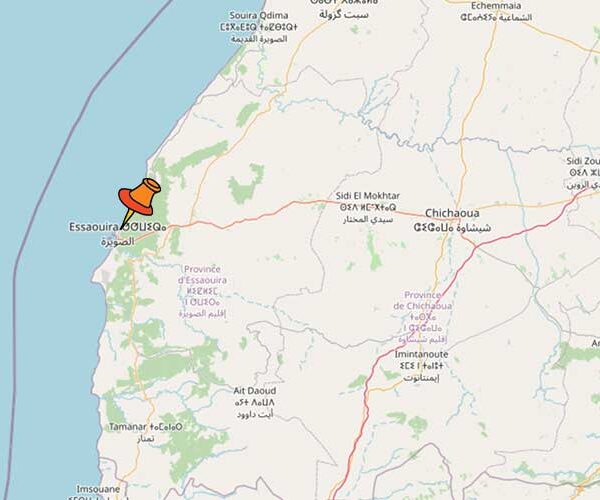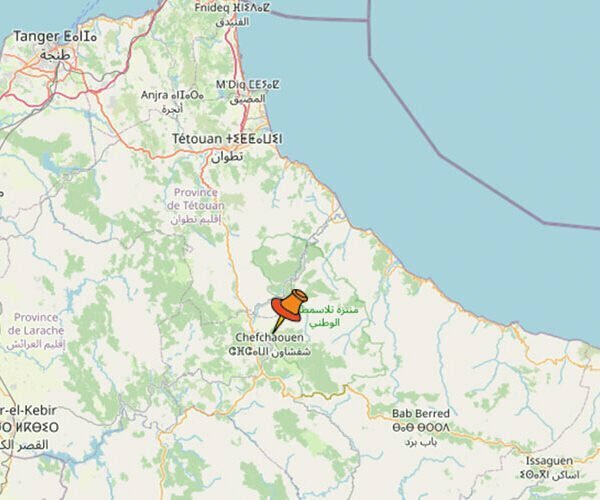Morocco has historical luggage which makes it an attractive destination to visit for a number of reasons. One of the most important reasons is its melting pot nature. Throughout history, Morocco has been a site of different cultures and religions. Our piece of writing today sketches mainly on some facts you may not know about the Jewish presence and heritage in Morocco if you are planning to pay the country a visit.
To start with, the presence of Jewish people in the Arab world in general, and in Morocco, in particular, has been influential in its makeup. Many writings trace back Jewish presence in Morocco to more than 2,000 years. Historically, their presence in the country has been linked to historical movements in Mediterranean encounters for thousands of years. In 1948, there were 260,000 Jews living in Morocco, forming the largest Jewish community in any Arab-Muslim country.
It is often said that Morocco is a holy land for the Jews, and this is true when one considers the high presence of Jewish places of worship; synagogues, Jewish cemeteries and sanctuaries spread all over the country: from Tangiers in the extreme north all the way to Tafilalt and Tinghir in the desert, from Oujda in the East to Mogador on the shores of the Atlantic Ocean.
There were even some places in the interior of the Atlas Mountains that had a Jewish majority until 50 years ago such as Sefrou Debdou. Many historical writings and documentaries,such as Kamal Hashkar’s Tinghir-Jerusalem, les échos du Mellah attest the presence of Jews in Morocco throughout history.
During the 1950s and between the 1970s and continuing to the 1980s, around 200,000 Moroccan Jews left Morocco due to a plethora of reasons. Israel has been the destination of the majority of these Jews who left Morocco; others spread between France, Spain, Canada, the United States, and Latin America. Now, only 3,000 Moroccan Jews remain in Morocco.
Although most Moroccan Jews left the country, they are allowed to return to Morocco to visit their places of worship and heritage. In effect, tolerance has been a key trait of the country. This religious tourism has never stopped and nowadays there are still thousands of Moroccan Jews from Israel and from all over the world who gather for the Hilulate or Zyarat in the various sanctuaries and cemeteries ( Zaouia in Moroccan Arabic) of Jewish righteous men.
There are more than 700 Righteous or to say, holy, Jews who lived and are buried in Morocco. There are a number of Hilulate many Jews people attending around the country such as Rabbi Yahya Lakhdar near the city of El Jadida, Rabbi David Ben Baroukh Azogh in Taroudant, and Rabbi Aman Bendiouan in Ouzzane in northern Morocco.
In general, Some of the Jewish zaouias within Morocco are located in the Tarodaunt region, others in Ourigane, Telouet and outside Fes and Sefrou. All these holy sites can be visited through a well-planned Jewish heritage tour. Morocco, in fact, remains the only Arab-Muslim country in which Jewish religious functions are still celebrated in synagogues.
What is more is that most of the Jewish heritage in Morocco are still traces and all the data of the people buried there. So, you may find tombs with the same and family name as yours if you pay those historical places a visit.
In fact, if you are a Sephardi Jews, it is most likely that your great grand father is buried in Morocco since most of the Sephardi Jews did. Perhaps he is even a holy site where Jews from Israel and the world do come to visit and you have not even a single idea! That’s why it is indeed a good idea to join a Jewish-heritage tour and come check for yourself.
Morocco’s main Jewish sites are located in Marrakech and Fes. This is due to the fact that these two imperial Cities have preserved Jewish Mellahs in old medinas; however, Jewish sites can be found throughout Morocco. For example, Moulay Ighi – Telouet, about 20 minutes from Marrakech on the road to Ouzarzate is the tomb of Moulay Ighi visited by Muslims and Jews alike. Morocco is doing a great job in preserving its diverse heritage of both Jews and Muslims.
Recently, the Moroccan authorities inaugurated large sites for the restoration of all places of interest for Jewish culture. The majority of those located in the new cities or villages are preserved. On the top of that, Jews currently living in Morocco are citizens with equal rights and duties compared to their Muslim compatriots.
In short, Jewish heritage in Morocco is worth visiting. The heritage consists of Synagogues, Cemeteries, Zaouias, Mellahs (preserved Jewish neighbourhoods in the old medinas)
The next question that may pop up in your mind can be: is it possible to find Kosher in Morocco during my visit?. Well, Morocco is known for its tolerance and diversity. Most of the restaurants in general and Hotels in Morocco serve kosher food. They also provide the best services. Those kosher restaurants and hotels are located in big cities such as Casablanca, Marackech, Fes, Essaouira, Agadir and many other places.
To crown it all, some may worry that Morocco is unsafe for Jews, when the truth is the complete opposite. While the Jewish presence in Morocco has diminished since the founding of the State of Israel, Jewish history and heritage in Morocco is profound back over 2,500 years. Many Moroccans consider Jews to be the original Moroccans and thus have tremendous respect towards the Jewish community.
So, at the end, the is “what are you waiting for?” If you live in Israel and reading this, we would love to let you know that there are up to four directs flights launched a week from Israel to Morocco. And for all Jews of the world, visiting Morocco should be like visiting Mecca for Muslims, so get up of your sofa already and come visit Morocco!
This blog post was written by Imad, one of our Morocco Local Insider contributors.



